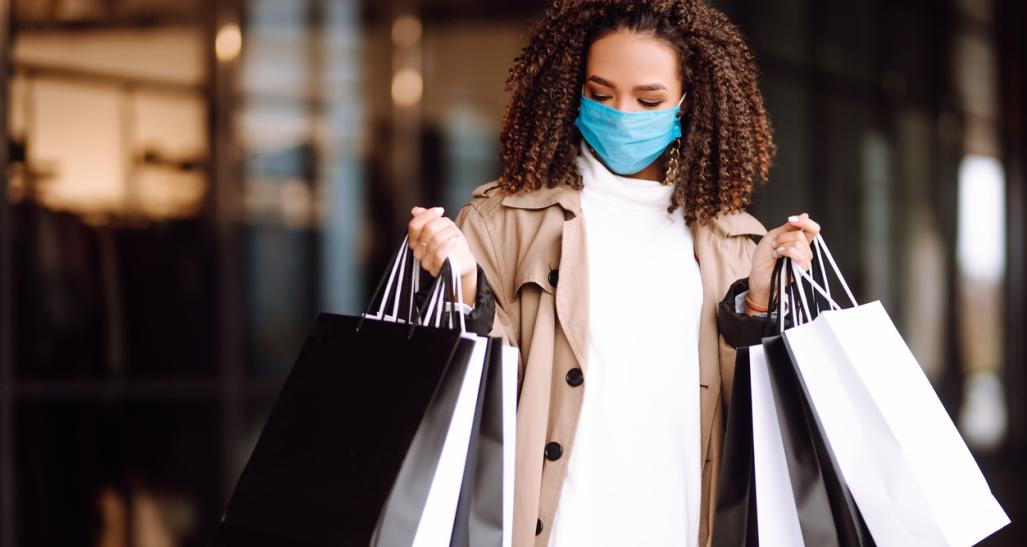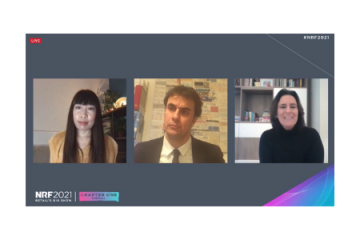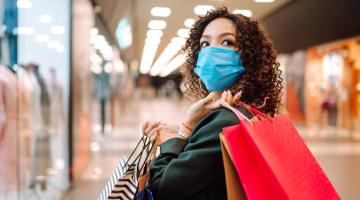
Digital shopping is no longer optional. It’s a necessity, and one that expands well into luxury — especially in China.
“Luxury Goes Digital: Understand how Alibaba and Moschino are Driving New Innovations” explored recent growth and creativity in the digital realm during NRF 2021: Retail’s Big Show – Chapter 1.
The session, moderated by Kati Chitrakorn, retail and marketing editor with Vogue Business, began with high-energy introductory videos from both Moschino and Alibaba Group.
According to the Alibaba video, the Tmall Luxury Pavilion platform, celebrating its third anniversary, is now home to roughly 200 leading luxury brands. It includes features like games, personalization and livestreaming. Tmall also recently launched Luxury Soho, an online outlet for Generation Z shoppers with interactive features including augmented reality and digital magazines.
Learn about how other retailers are innovating with the changing times here.
And the timing has never been better. “It’s really an exciting year for us,” said Christina Fontana, head of fashion and luxury with the Tmall Luxury division of Alibaba Group.
As recovery from the COVID-19 pandemic continues in China, Chitrakorn said, luxury brands are embracing new ways to engage with the Chinese luxury consumer, no matter where they are. In that vein, Moschino and Alibaba have collaborated to create “unforgettable, elevated luxury shopping experiences,” Chitrakorn said.
Stefano Secchi, managing director of Moschino SpA, spoke of how the Italian luxury brand has always had innovation and forward thinking as part of its DNA. It was, he said, one of the first to create “see now, buy now” collections, and to start capsule collection collaborations with the likes of McDonald’s and Budweiser.
“Nowadays, when you talk about innovation, you need to talk about digital,” Secchi said. “The two words go together … . In this challenging year that was 2020, Moschino thought about innovation and digital very, very strongly, with attention.” For Spring/Summer 2021, Moschino launched a digital show that used marionettes; the brand also explored augmented reality.
“When you talk about innovation, you need to talk about digital. The two words go together.”
Stefano Secchi, Moschino Spa
As for the Chinese market and the collaboration with Alibaba, it has been and will continue to be a “key focus” for the brand to keep pushing digitization and innovation there, he said.
Fontana, meanwhile, spoke about the way Alibaba works with brands.
“As Stefano was saying, brands are really fantastic at creating content, creating digital innovation and creating collections,” Fontana said. “With Tmall Luxury Pavilion, we have created a platform that allows the brands to amplify their content and their creations toward the Chinese consumers.
There are more than 700 million consumers on Alibaba platforms, “so really, Alibaba is about helping brands understand the best way to communicate in China,” Fontana said, “and maximize their presence there, and entertain, engage and build loyalty among their consumers in China.”
Moschino began its successful partnership with Tmall in 2018; Secchi said the technology, Chinese consumer insight and the relational human approach of Alibaba were all appealing.
In the past, Fontana said, Chinese luxury consumers typically bought and interacted with brands while traveling. COVID-19, however, has shifted focus. As these consumers continue to shop from home, there’s continued room for digital luxury growth. Luxury consumers in China tend to be younger than their counterparts in the United States, which works well with Moschino’s playfulness and youthful aesthetic.
Overall, of the more than 200 luxury brands took part in Alibaba’s most recent 11-11 Global Shopping Festival, 65 joined for the first time. There were exclusive capsule collections, introductions of items available for the first time ever in China, and more than 100,000 short videos shared by 1.5 billion people in China. “It’s about finding a new way to make shopping fun,” Fontana said.
She expects digitization to continue in the coming year, but for it to expand beyond selling online into digitizing, for example, the supply chain, logistics and merchandising for increased efficiency.
Fontana also expects to see “the rise of the local shopper” with, say, Americans shopping in the U.S., Chinese shopping in China and Milanese shopping in Milan. More than 60 percent of Moschino’s physical presence in Asia is in China, Secchi said.
“Obviously, we’re looking at our presence not only physical stores,” he said. In 2021 and beyond, success will come with an omnichannel strategy, and the partnership with Alibaba will help that dream become reality, he said.



